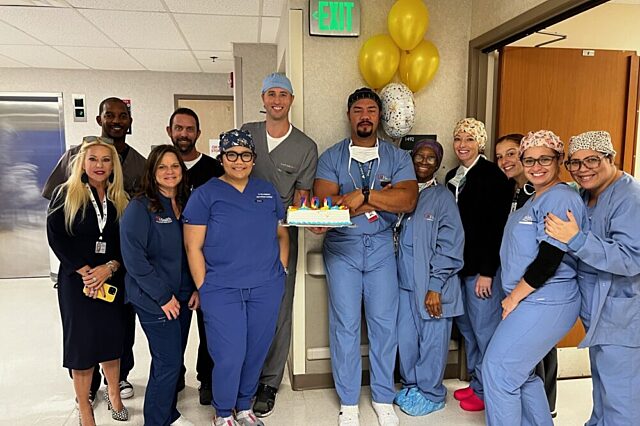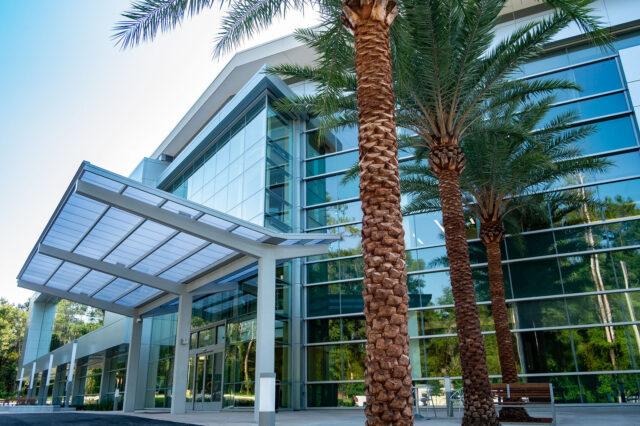Equipped with state-of-the-art technology and nationally recognized expertise, UF Health’s electrophysiology experts offer a wide range of procedures to accurately diagnose and treat Atrial Fibrillation and other heart rhythm disorders.
Why Choose UF Health?
UF Health’s electrophysiology and arrhythmias program offers patients the most advanced diagnostic and treatment technologies in a patient-centered environment for Atrial Fibrillation and all heart rhythm disorders. Our team takes pride in offering patients personalized treatment plans based on non-invasive evaluation and offers advanced therapies and procedures for patients with arrhythmias, including atrial fibrillation, tachycardia, atrial flutter and congenital heart rhythm problems.
Diagnosis
Correct diagnosis is at the core of providing patients with the best treatment outcomes, and UF Health combines tried-and-true methods and the most advanced diagnostic technologies to precisely pinpoint the source of heart rhythm disorders. These include:
- CareLink™ (remote monitoring for devices)
- Echocardiogram
- Electrocardiogram (ECG or EKG)
- Electrophysiological testing and mapping
- Evaluation of defibrillator function and reprogramming
- Event or Holter monitoring
- Non-invasive arrhythmia evaluation
- Remote pacemaker monitoring
- Stress Test
- Tilt Table Testing
Care
UF Health cardiologists and cardiovascular surgeons collaborate to offer the full spectrum of care for patients with atrial fibrillation and other heart arrhythmias. Treatments range from medicine to surgery, and each patient’s treatment plan is tailored specifically to what is best for them:
AFib Therapies
- Cardioversion to shock the heart back into normal rhythm
- Catheter-based ablation interventions to eliminate the trigger points on the heart that enable abnormal rhythms, including cryoballoon therapy
- Medications to restore a normal rhythm
- Novel blood-thinning medications to prevent stroke
- The “Mini-Maze” operation and other minimally invasive pulmonary vein isolation procedures
- Hybrid procedures for AFib (including maze and convergent procedures)
Treatments for arrhythmias or other problems with the heart’s electrical system include:
- Broad range of cardiac implantable device procedures (including pacemakers, defibrillators, subcutaneous defibrillators, bi-ventricular pacing, and physiologic pacing)
- Cardiac ablation procedures (catheter ablation, cryoablation, radiofrequency ablation)
- Curative surgery for Wolff-Parkinson-White syndrome and other supraventricular tachycardia, when not ablatable
- Inherited arrhythmia clinic
- Left atrial appendage occlusion device (WATCHMANTM) implantation
- Minimal fluoro and fluoroless procedures
- Pacemaker/ICD, including complex extraction procedures
- Permanent pacemaker implantation
- Radiofrequency ablation for supraventricular tachycardia, atrial flutter/fibrillation, accessory pathways (Wolff-Parkinson-White syndrome) and ventricular tachycardia
- Subendocardial resection for ventricular tachycardia
- Treatment of arrhythmias that have failed traditional therapies, including novel approaches such as pericardial ablation for refractory ventricular tachycardia
Working closely with our team of thoracic cardiovascular surgeons, we also offer advanced arrhythmia surgeries, including minimally invasive procedures, to treat atrial fibrillation or ventricular tachyarrhythmias.




